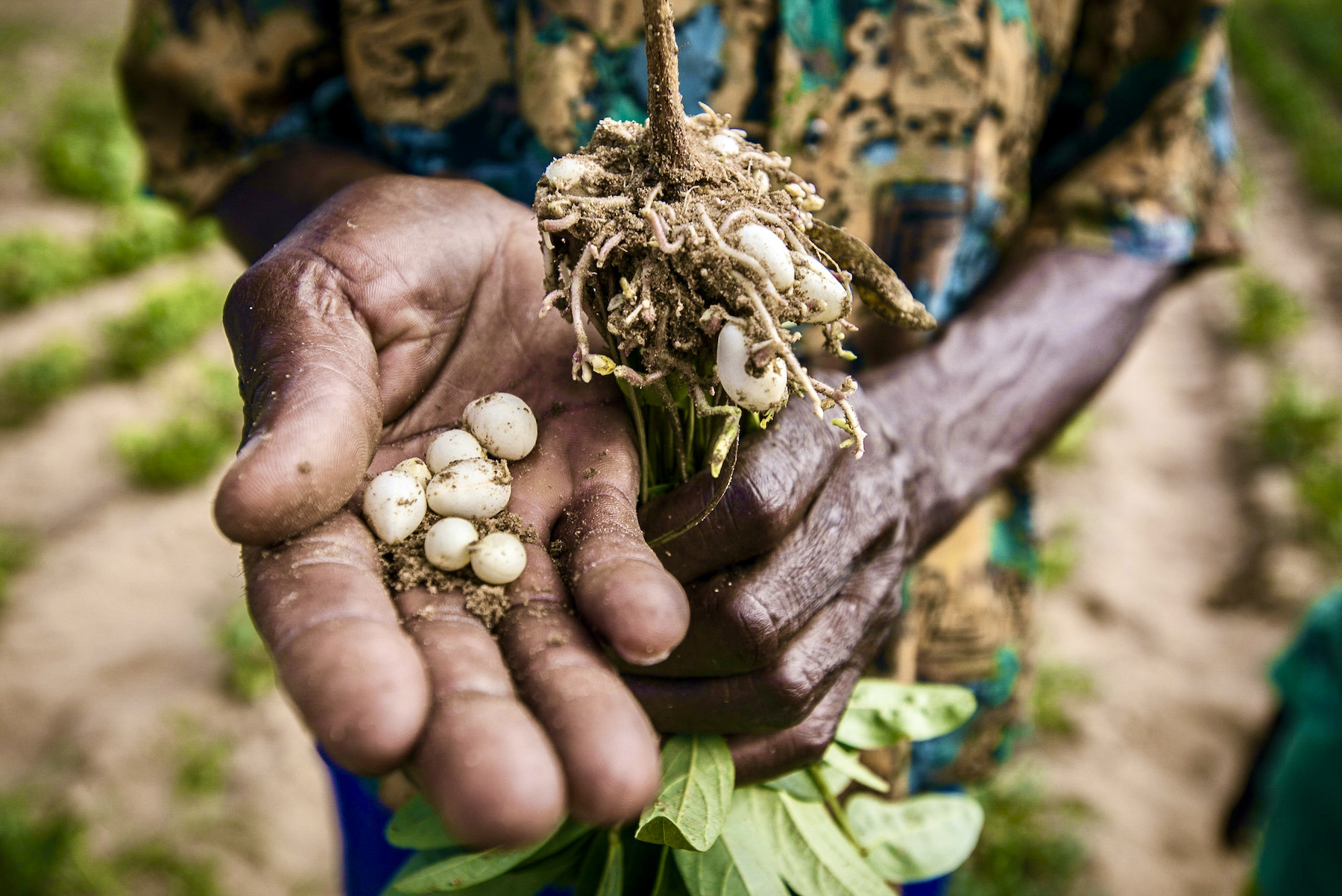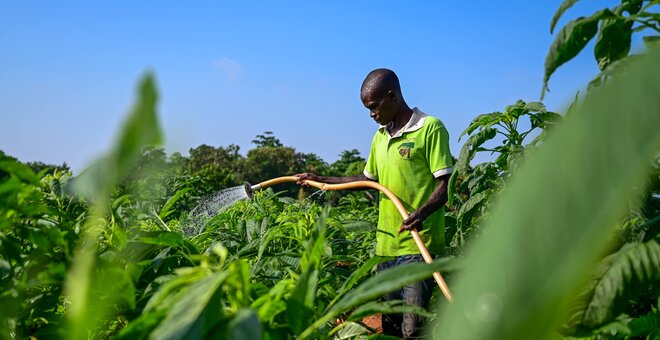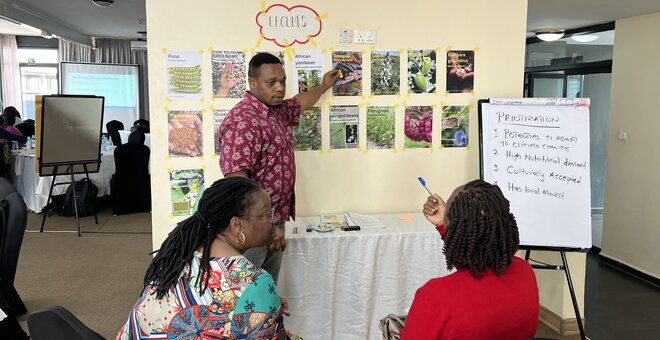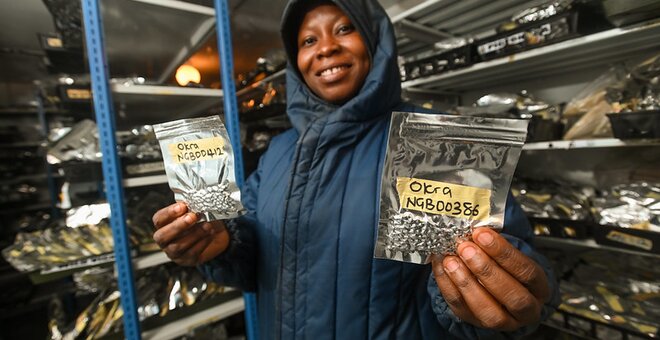Opportunity Crops
Growing a diversity of crops is a key strategy to improve nutritional and food security and safeguard farmers' fields and livelihoods against the impacts of climate change. Different crops provide various nutrients and respond differently to heat, drought and pests and diseases. Conserving crop diversity and making it available for use ensures that the farmer always has something to harvest.
One type of crop has great potential in this respect – opportunity crops. These traditional and lesser known crops were once important sources of food but have fallen out of favor and often off of market shelves. This is due to lack of attention by researchers, breeders and policymakers — and also because other crops became trendier.
Neglected no More
The Crop Trust is tapping the potential of opportunity crops through BOLDER (Building Opportunities for Lesser-known Diversity in Edible Resources). BOLDER works with partners across Africa — Benin and Ghana in West Africa and Tanzania and Uganda in East Africa. The project enhances the conservation, production and consumption of opportunity crops that are nutritious, robust, environment-friendly and important for local communities. BOLDER is funded by the Government of Norway under the BOLD project.
Identifying and Improving Candidate Crops
BOLDER works with genebanks, universities, national and international agricultural research organizations, farmers, food companies and food system stakeholders to identify four opportunity crops. These crops present particular opportunities to contribute to the nutritional security of their respective project countries. National genebanks are planning in-country collecting missions to increase their current collections of crop diversity associated with the prioritized crops. These collections will be documented and conserved, including with back-ups in the Svalbard Global Seed Vault. Farmers and consumers are closely involved in evaluating the crops and any improved varieties to ensure they meet local needs.

Examples of neglected and underutilized species
Strengthening Demand and Availability
These crops will only really have a positive impact on food and nutrition security and farmers’ resilience if there is consumer and efficient production systems and markets to satisfy that demand. BOLDER works with experts in agricultural value chains in partner countries to increase cultivation and production of these opportunity crops. This improves the availability, production and consumption of nutritious food for both rural and urban consumers. It also opens employment and income opportunities for youth, women and indigenous communities.
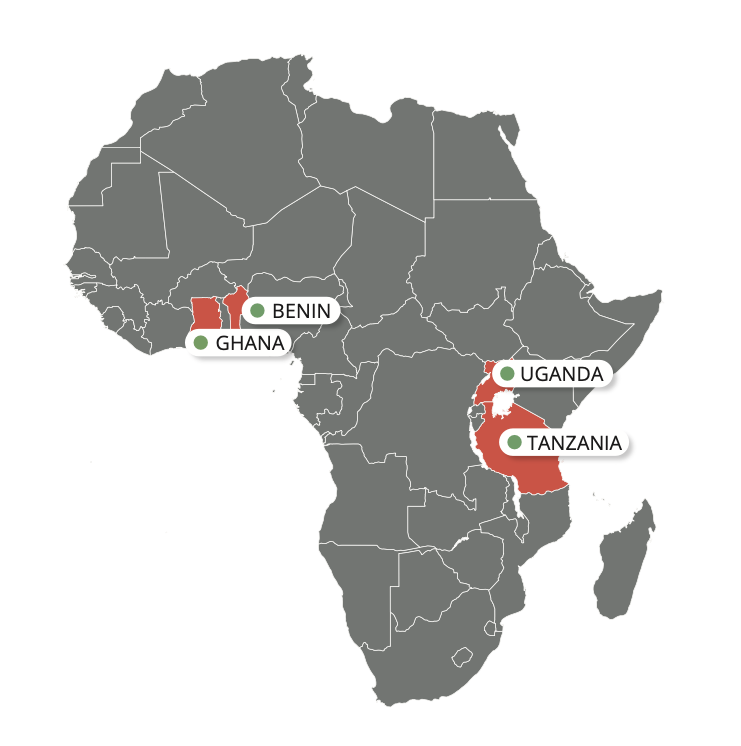
A Multipartner Effort
BOLDER is a collaborative effort. Key players include the Norwegian University of Life Sciences which is co-leading the effort with the Crop Trust. Our partners include the Secretariat of the International Treaty on Plant Genetic Resources for Food and Agriculture, the Alliance of Bioversity International and CIAT and other One CGIAR Centers, the World Vegetable Center, the John Innes Centre, the James Hutton Institute, national agricultural research systems, universities, NGOs, farmer households and the private sector.
Together, we are bringing opportunity crops back. BOLDER is working to increase communities’ access to foods with high nutritional value while bolstering efforts to develop resilient and climate-proof agriculture.
For more information about opportunity crops, visit the Opportunity Crops Knowledge Base.
Related Stories
Five Ways Africa’s Opportunity Crops Can Shape the Future of Food
Africa’s population is set to double by 2050, with cities absorbing most of that growth. At the same time, diets are changing, climate shocks are intensifying and policies still favor a few major crops. Against this backdrop,...
9 Dec 2025
From 100 to Four: Favorites in Focus for BOLDER Opportunity Crops
BOLDER Project Stakeholders Meet to Identify 15 Underutilized Species for Conservation and Use
Over 250 farmers, genebank experts, government representatives, and private-sector partners gathered in Benin, Ghana, Tanzania and...
14 Apr 2025
Crop Trust dares to be BOLDER with expansive initiative in Africa
Dubai, United Arab Emirates, 10 December 2023 — As the world comes together to urgently chart a better course forward for climate action at COP 28 in Dubai, the Crop Trust is proud to announce the launch of the BOLDER (Building...
10 Dec 2023

